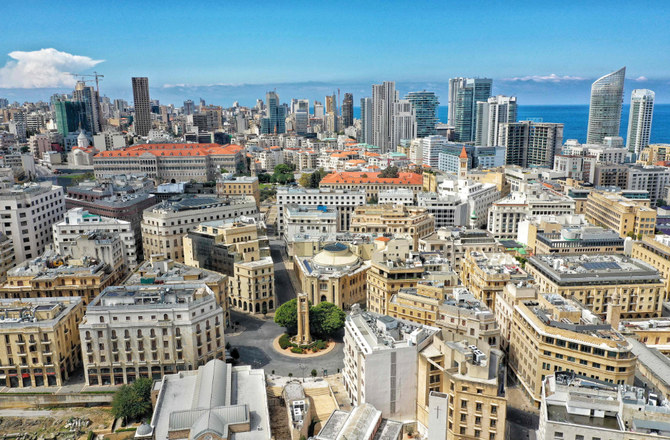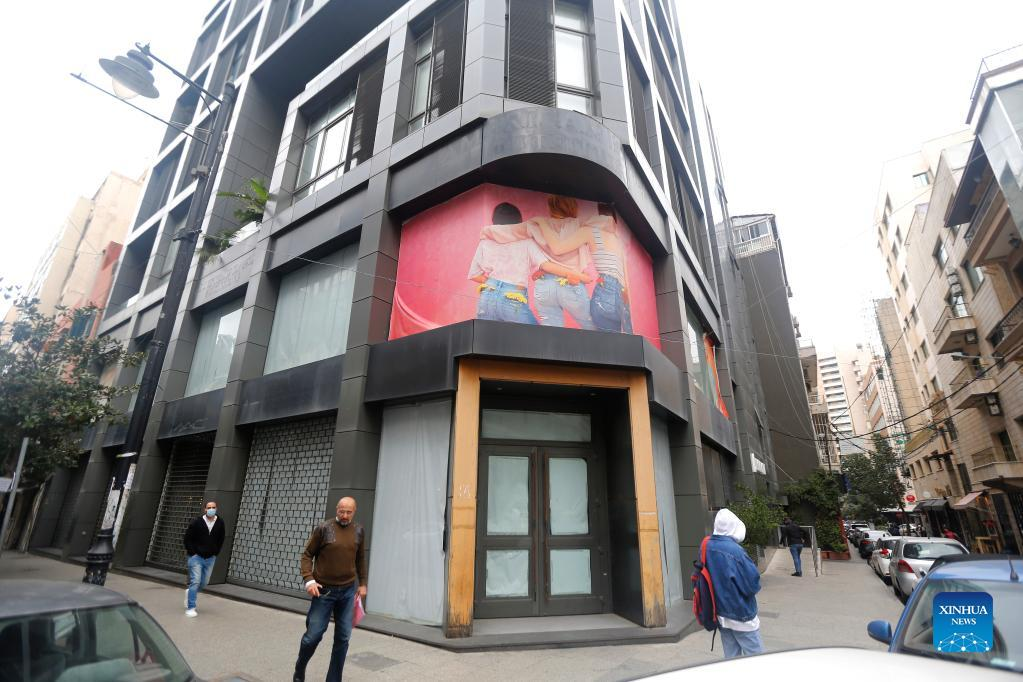by reuters — Lebanon’s cabinet will hold its first meeting in three months on Jan. 24, a Lebanese television channel reported …

By Najia Houssari -- arabnews.com -- BEIRUT: A Lebanese Shiite scholar has denounced Hezbollah, as well as its leader Hassan Nasrallah and his deputy Sheikh Naim Qassem, in a sermon published on his Facebook page and shared across social media. Sheikh Abdul Salam Dandach, from the Baalbek–Hermel region, said in the video: “Our resistance is different from theirs (Hezbollah’s). We are not the rulers of this land and we are not new parties that came to Lebanon. Our parents and ancestors are deeply rooted in this land.” The party is referred to as the “resistance” in Lebanon. He addressed Nasrallah, saying: “You resist using deception and encroachment. You live off your resistance, based on the bliss of the US dollar, whereas our resistance comes from hunger and poverty. You resist through surfeit and ingratitude. We resist your lies. We resist the illness and ignorance that you caused in the region. We resist the destruction and havoc that you created.”
Since the beginning of the economic and social crisis that has hit Lebanon, many in the Shiite community of Baalbek–Hermel have complained about the rampant insecurity that the region is witnessing due to the emergence of a de facto power that controls people's lives with its weapons and allows the formation of gangs involved in smuggling, kidnapping and extortion. An activist from the region, who did not reveal his identity, told Arab News: “Baalbek–Hermel doesn’t have any patron. The government has been neglecting it for years and Hezbollah tries to avoid it, turning its back on the complicated social and economic crises.” The Shiites in Baalbek–Hermel constitute 60 percent of the population, whereas the Sunnis and Christians represent 20 percent apiece. Fewer than 30 percent of the Shiites belong to political parties, mostly the Amal Movement and Hezbollah, whereas the rest belong to a clan.

By MAYSAA AJJAN -- arabnews.com -- BEIRUT: Lebanon’s financial woes began with the protests in October 2019, when a series of peaceful sit-ins escalated and became a national revolution against the ruling class. Soon, there was a steep decline in the value of the Lebanese pound against the dollar. The official rate is still 1,500 pounds to the dollar but the currency has lost more than 90 percent of its value and now trades at about 30,000. Meanwhile, Lebanese banks decided to withhold the savings of individuals and organizations, a decision that resulted in many residents losing their life savings and the closure of numerous organizations, family businesses and startups. “I lost $350,000 of my money because of the crisis,” Rana Chmaitelly, the founder of The Little Engineer, an educational startup for children, told Arab News. “I lost the product of my sweat, blood and tears — they took it all away. But I didn’t give up.”
In a stroke of good fortune amid the despair, toward the end of 2019 Chmaitelly was expecting a large transfer of money from a business partner. Having been denied access to the cash in her own bank account in Lebanon, her only solution was to swiftly establish an offshore, and later a freezone, company in the UAE, to which the money her partner owed her could be safely transferred. “That transfer to the UAE saved me and my team, or else we would now be owing a lot of money to our partners,” Chmaitelly said. Her story is not unique among Lebanese startups. The founders of Cherpa, another educational startup, which offers technology training courses to teenagers, also relocated in part to the UAE at the onset of the financial crisis. They were able to open a freezone company there and obtain residency. “Having our money withheld by banks was awful; there was a lot of frustration,” cofounder Bassel Jalaleddine, told Arab News. “I used to waste my time queuing up in banks all day just to get $300.” Online platforms Mint Basel Market, Kamkalima and Ounousa are just some of the other startups that relocated operations, at least partly, to the UAE.
احد مبارك مهما كانت الاسباب الكامنة وراء اعلان حزب الله وامل مشاركتهما في جلسات الحكومة ( لاجل اقرار الموازنة فقط! او دون …
Khazen History


Historical Feature:
Churches and Monasteries of the Khazen family

St. Anthony of Padua Church in Ballouneh
Mar Abda Church in Bakaatit Kanaan
Saint Michael Church in Bkaatouta
Saint Therese Church in Qolayaat
Saint Simeon Stylites (مار سمعان العامودي) Church In Ajaltoun
Virgin Mary Church (سيدة المعونات) in Sheilé
Assumption of Mary Church in Ballouneh
1 - The sword of the Maronite Prince
2 - LES KHAZEN CONSULS DE FRANCE
3 - LES MARONITES & LES KHAZEN
4 - LES MAAN & LES KHAZEN
5 - ORIGINE DE LA FAMILLE
Population Movements to Keserwan - The Khazens and The Maans
ما جاء عن الثورة في المقاطعة الكسروانية
ثورة أهالي كسروان على المشايخ الخوازنة وأسبابها
Origins of the "Prince of Maronite" Title
Growing diversity: the Khazin sheiks and the clergy in the first decades of the 18th century
Historical Members:
Barbar Beik El Khazen [English]
Patriach Toubia Kaiss El Khazen(Biography & Life Part1 Part2) (Arabic)
Patriach Youssef Dargham El Khazen (Cont'd)
Cheikh Bishara Jafal El Khazen
Patriarch Youssef Raji El Khazen
The Martyrs Cheikh Philippe & Cheikh Farid El Khazen
Cheikh Nawfal El Khazen (Consul De France)
Cheikh Hossun El Khazen (Consul De France)
Cheikh Abou-Nawfal El Khazen (Consul De France)
Cheikh Francis Abee Nader & his son Yousef
Cheikh Abou-Kanso El Khazen (Consul De France)
Cheikh Abou Nader El Khazen
Cheikh Chafic El Khazen
Cheikh Keserwan El Khazen
Cheikh Serhal El Khazen [English]
Cheikh Rafiq El Khazen [English]
Cheikh Hanna El Khazen
Cheikha Arzi El Khazen
Marie El Khazen